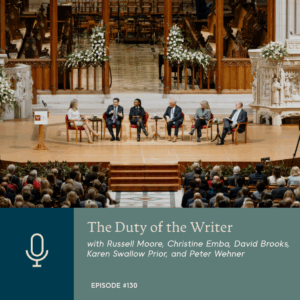It’s widely reported that Charles Colson once said he’d walk over his grandmother to get Richard Nixon elected to a second term. In the Nixon White House he was considered smart, effective, and ruthless—Nixon’s “hatchet man.” Then came Watergate, a prison sentence, and a conversion nearly as dramatic as St. Augustine’s or St. Paul’s.
Mr. Colson—who passed away [Saturday] at the age of 80—was among the most consequential Christians of the last 35 years. He was a prolific writer, a sought-after speaker, and a tireless advocate for unborn children. Having once been a prisoner, he started a ministry for lawbreakers. Having been touched by grace, he never felt anyone was beyond its reach.
Colson was a key figure among Evangelicals and Catholics. Together with leading Evangelical and Roman Catholic scholars, he signed a 1994 ecumenical document that sought to present a common witness to the modern world. He also warned about decadence and decline in the West and did everything in his power to reverse it. And he constantly argued for the importance of a proper worldview, challenging Christians to live as members of the kingdom of God and to be the people of God.
In my encounters with him over the years, I found Colson to be candid, encouraging, principled, a source of wisdom, a person of enormous integrity, and something of a touchstone. He understood the inherent tensions of being a Christian in politics and seemed to get the balance as close to right as anyone.
But most of all, Mr. Colson struck me as a man who fell in love and stayed in love with the Lord. He touched countless lives during his pilgrimage.
When thinking about the arc of Colson’s life, I was reminded of a passage from John Bunyan’s The Pilgrim’s Progress. Early on in Christian’s journey to the Celestial City, he encounters the hideous monster Apollyon. Apollyon tells Christian that it is ordinary for those that have professed themselves God’s servants after awhile to “give Him the slip and return again to me.” To which Christian says, “I have given Him my faith, and sworn my allegiance to Him; how, then, can I go back from this?” And then Christian added this:
I count that the Prince under whose banner I now stand is able to absolve me, yea, and to pardon also what I did as to my compliance with thee. And besides, O thou destroying Apollyon, to speak the truth, I like His service, His wages, His servants, His government, His company, and country better than thine; therefore leave off to persuade me further: I am His servant, and I will follow Him.
Around 1973, Mr. Colson gave up standing under one banner to stand under another. He became God’s servant. He faithfully followed Him to the end. And now, blessedly, he is united with his Lord.
Charles Colson is home.
Peter Wehner is a senior fellow at the Ethics and Public Policy Center.

